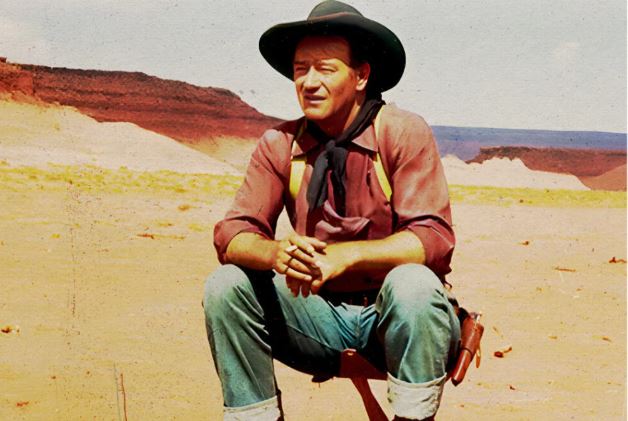Considering that he spent almost his entire career as a mainstream star playing thinly veiled extensions of the same persona almost in perpetuity, the idea of John Wayne being born to play a particular character sounds like a bit of a stretch.
After all, once ‘The Duke’ had settled into his groove as one of Hollywood’s most bankable commodities, he rarely deviated from type. It wasn’t an accident either, with the actor making it patently clear that he was committed to remaining firmly inside his wheelhouse in a rare instance of a big name embracing typecasting.

Wayne had plenty of chances to step outside his comfort zone, but didn’t take them. Instead, his trajectory was dictated by the audience. People wanted to see John Wayne doing John Wayne things, and the box office takings reflected that sentiment, which meant he had no issues giving it to them for decades because they were the ones who took money out of their pockets and put it into his.
With that in mind, it seems odd that ‘The Duke’ would call one of his most memorable parts a date with destiny. For the better part of 40 years, he was basically playing himself, which was ironic in itself when the kid born Marion Morrison worked hard to build the mythology that would define his onscreen alter-ego.
However, once he’d been made privy to an early copy of Charles Portis’ True Grit, Wayne immediately knew he was fated to play the lead in a feature-length adaptation. “I was able to get hold of a copy of the publisher’s galleys,” he told Michael Munn. “And when I read this story of a fat old one-eyed marshal called Rooster Cogburn, I said, ‘I was born to play this part.’”
“And it was a character that had never been seen in a picture before,” he explained. “Here was a guy with an eye patch, who’s survived because he knew you couldn’t give an outlaw a chance. You had to use fair means and foul to bring the outlaw to justice. But he always did it for the greater good, if you will.”
It can’t be said that Wayne’s instincts weren’t right on the money. He lobbied hard for the lead after discovering that producer Hal B Wallis had purchased the rights, and once he was brought on board, ‘The Duke’ was instrumental in recruiting his friend and frequent collaborator, Henry Hathaway, to direct.
Rooster Cogburn was instantly hailed as one of the legendary star’s greatest-ever performances, and became the crowning achievement in his storied filmography when it won him an Academy Award for ‘Best Actor’. ‘The Duke’ was adamant that he was born to play the role, and based on how it worked out for him in the end, it’s hard to say he was wrong.
